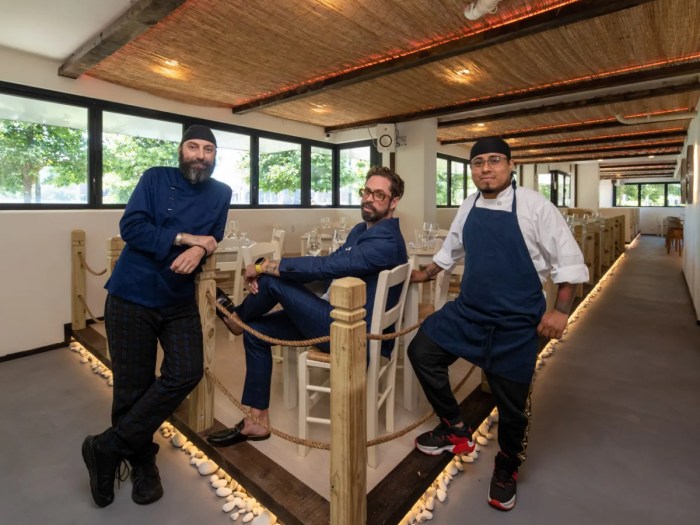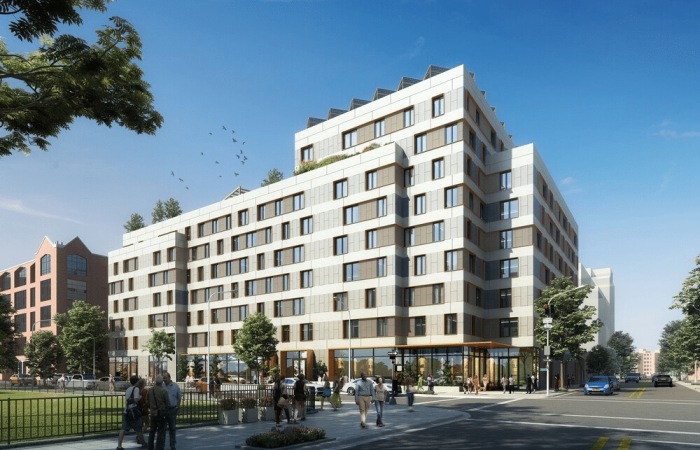First North 3rd Street, now Berry Street, then… the world!
Williamsburg’s beloved nascent beer garden, Radegast, (113 North 3rd Street) is so popular that it is quickly growing beyond its North 3rd Street homeland.
In four months Radegast Hall and Beer Garden will open another communal beer hall on 190 Berry Street, a triangular-roofed structure with 2200 square feet designed primarily for large parties such as weddings and other private events. The new space has a higher ceiling, an old-fashioned service bar, and its own proscenium stage.
Radegast owner Ivan Kohut, who emigrated from the Slovak Republic, then Czechoslovakia, to Brooklyn in 1996, said that the spirit of the new space will remain the same.
“The whole idea is to be a beer and sausage place that is pretty much conceptually in tact with the existing project. We’re still staying within this 1890s-style beer garden, where it is a place for people to meet, eat casual grilled meals and sip on large beers.”
Despite the winter chill, Kohut reports that the beer hall has had an average Saturday turnaround of 700 to 800 people, which necessitated the need to expand. Saturday nights at Radergast are energetic, with customers sitting at heavy, cafeteria-style wooden benches and sipping on an array of central and eastern European beers.
Their flagship beer is a Weiss, or wheat beer, called Vitus, from abrewery in the outskirts of Munich, Bavaria, that uses 1,000-year-old yeast.
“It is a living animal basically, from one of the oldest breweries in the world,” said Kohut. “Basically they’ve been guarding, procuring this yeast which today you can taste the same beer. It’s a beer with character, perfect for the February chill.”
Beer gardens are a relatively new phenomenon to the city, but Radegast has proved popular since it opened in 2007. Kohut points to the customer’s preference to sitting next to stranger as opposed to being seated and hearing a list of drinks recited to you by a waiter. A truly casual environment may be a cliche, but for Kohut, the idea of sharing a table is critical to a successful beer garden.
“Strangers sitting next to strangers means there is more of a chance for conversation,” said Kohut. “Also more of an idea of not having a host, someone to tell you what to do gives you a free environment.”
Actung, Radegast baby!






















